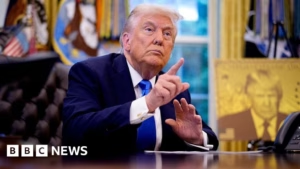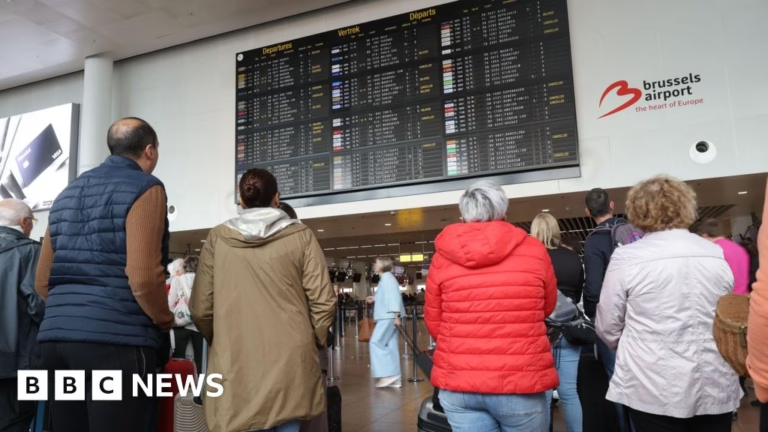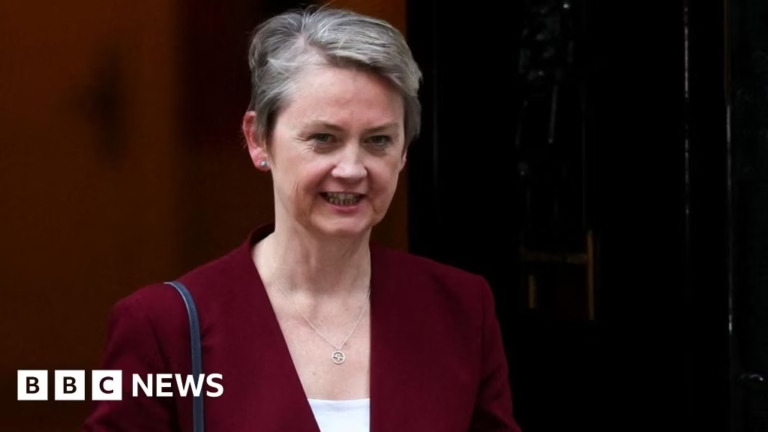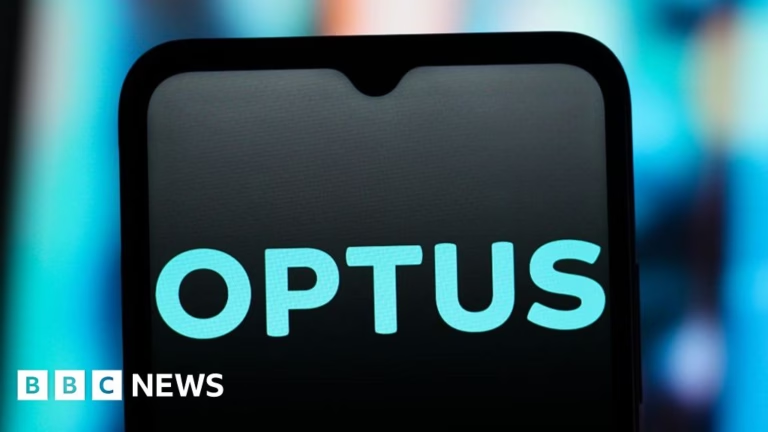Soutik Biswas and Nikhil Inamdar
BBC News
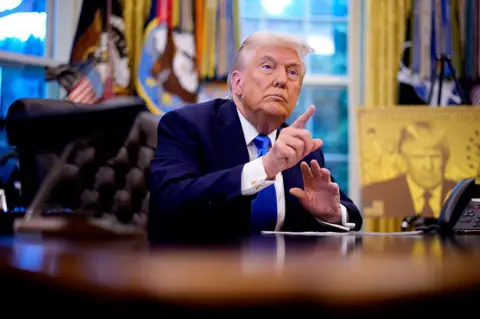
Getty Images
Panic, confusion and then a hasty White House climbdown – it was a weekend of whiplash for hundreds of thousands of Indians on H-1B visas.
On Friday, US President Donald Trump stunned the tech world by announcing an up to 50-fold hike in the cost of skilled worker permits – to $100,000. Chaos followed: Silicon Valley firms urged staff not to travel outside the country, overseas workers scrambled for flights, and immigration lawyers worked overtime to decode the order.
By Saturday, the White House sought to calm the storm, clarifying that the fee applied only to new applicants and was a one-off. Yet, the long-standing H-1B programme – criticised for undercutting American workers but praised for attracting global talent – still faces an uncertain future.
Even with the tweak, the policy effectively shuts the H-1B pipeline that, for three decades, powered the American dream for millions of Indians and, more importantly, supplied the lifeblood of talent to US industries.
That pipeline reshaped both countries. For India, the H-1B became a vehicle of aspiration: small-town coders turned dollar earners, families vaulted into the middle class, and entire industries – from airlines to real estate – catered to a new class of globe-trotting Indians.
For the US, it meant an infusion of talent that filled labs, classrooms, hospitals and start-ups. Today, Indian-origin executives run Google, Microsoft and IBM, and Indian doctors make up nearly 6% of the US physician workforce.
Indians dominate the H-1B programme, making up more than 70% of the recipients in recent years. (China was the second-largest source, making up about 12% of beneficiaries.)
The medical sector underlines the stakes. In 2023, more than 8,200 H-1Bs were approved to work in general medicine and surgical hospitals.
India is the largest single source of international medical graduates (who are typically in US on H-1B visas) and make up about 22% of all international doctors. With international doctors forming up to a quarter of US physicians, Indian H-1B holders likely account for around 5-6% of the total.
Experts say pay data shows why Trump’s new $100,000 fee is unworkable. In 2023, the median salary for new H-1B employees was $94,000, compared with $129,000 for those already in the system. Since the fee targets new hires, most won’t even earn enough to cover it, say experts.
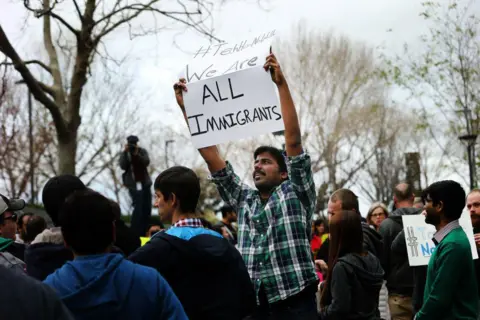
San Francisco Chronicle via Getty Images
“Since the latest White House directive indicates that the fee would only apply to new H-1B recipients, this is more likely to cause medium and long-term labour shortages instead of immediate disruption,” Gil Guerra, an immigration policy analyst at the Niskanen Center, told the BBC.
India may feel the shock first, but the ripple effects could run deeper in the US. Indian outsourcing giants such as TCS and Infosys have long prepared for this by building local workforces and shifting delivery offshore.
The numbers tell the story: Indians still account for 70% of H-1B recipients, but only three of the top 10 H-1B employers had ties to India in 2023, down from six in 2016, according to Pew Research.
To be sure, India’s $283bn IT sector faces a reckoning with its reliance on shuttling skilled workers to the US, which accounts for over half its revenue.
IT industry body Nasscom believes the visa fee hike could “disrupt business continuity for certain onshore projects”. Clients are likely to push for repricing or delay projects until legal uncertainties are cleared, while companies may rethink staffing models – shifting work offshore, reducing onshore roles and becoming far more selective in sponsorship decisions.
Indian firms are also likely to pass on the increased visa costs to US clients, says Aditya Narayan Mishra of CIEL HR, a leading staffing firm.
“With employers reluctant to commit to the heavy cost of sponsorship, we could see greater reliance on remote contracting, offshore delivery and gig workers.”
The broader impact on the US could be severe: hospitals facing doctor shortages, universities struggling to attract STEM students, and start-ups without the lobbying muscle of Google or Amazon are likely to be hit hardest.
“It [visa fee hike] will force US companies to radically change their hiring policies and offshore a significant amount of their work. It will also ban founders and CEOs coming to manage US-based businesses. It will deal a devastating blow to US innovation and competitiveness,” David Bier, director of immigration studies at the Cato Institute, told BBC.
”
Source: https://www.bbc.com/news/articles/ce3yy58lj79o?at_medium=RSS&at_campaign=rss
